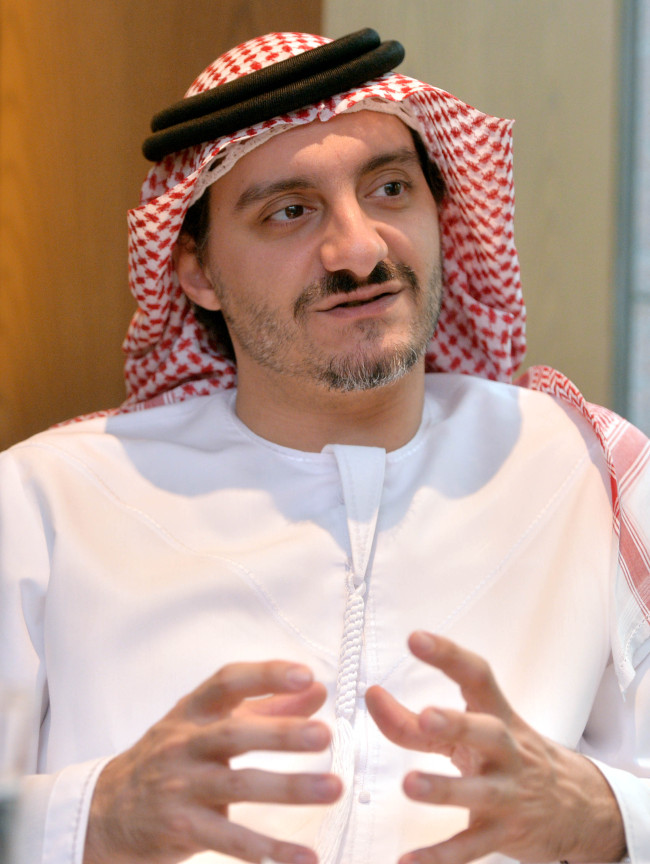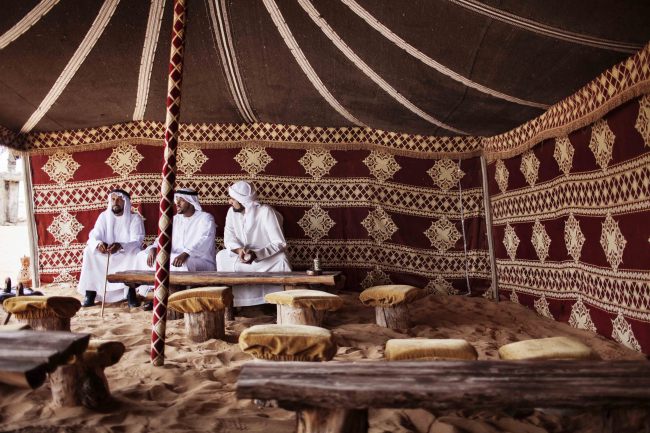Modern architecture and luxurious hotels are the images often associated with Dubai. But behind this modern image are traditional Arabic charms, says Saleh Mohamed Al Geziry, director of overseas offices within the Dubai Corporation of Tourism and Commerce Marketing.
“Dubai has catered to luxury travelers, but there is also a lot to discover behind the modern and luxurious side of the city,” Al Geziry told The Korea Herald on Thursday.
 |
Saleh Mohamed Al Geziry. (Lee Sang-sub/The Korea Herald) |
Al Geziry was in Seoul on a tour of Northeast Asia to promote Dubai tourism. The tour reflects a growing number of Asian tourists to Dubai.
“Asian arrivals to Dubai are growing very fast with the increase in flight connections,” he said. Dubai saw 11 million tourist arrivals last year. Of them, the Chinese made up 5 percent. The number of Korean tourists stood at 55,250. It aims to attract 20 million visitors by the end of 2020 under the “Tourism Vision for 2020.”
He said Dubai’s culture and traditional lifestyle were still less well known than some popular modern buildings such as the Burj Khalifa, the world’s tallest building, which has the Armani Hotel and Burj Al Arab hotel.
 |
An Arabic tent is set up in the desert in Dubai. (Department of Tourism and Commerce Marketing) |
Dubai preserves traditional districts and local markets, or “souks,” such as the Al Fahid historical neighborhood, one of the oldest heritage sites in the city. Distinct Arabian traditional houses and narrow lanes take visitors to the old Dubai before the modern development.
For those seeking an exotic shopping experience, souks offer truly Arabian experience. The Deira Gold Souk is a must-visit place. The largest gold market in the world shows how Dubai was once a major trade hub in the region. Other souks reveal exquisite items from neighboring countries, such as antique silver jewelry, traditional daggers and prayer beads.
This summer may be the best season for tourists hoping to be fully immersed in Islamic culture. As Ramadan will be held from June 28 to July 27, the local tourism sector is spurring cultural activities to celebrate the break of the monthlong fast after dusk. Hotels hold music and dance performances at night. Shopping malls and night markets stay open later than usual.
Dubai is also regarded as an artistic hub in the Arabian region, Geziry said.
Art has taken the center stage in Dubai’s cultural scene. The annual Art Dubai fair brings art collectors and artists to the city. The fair also serves as a great networking opportunity for artists from other parts of the Middle East.
“It’s vibrant and grows fast with expanding art market, galleries and artists,” Al Geziry said.
“Dubai can fulfill the needs of those looking for genuine cultural experiences and a destination they’ve never been to before.”
By Lee Woo-young (
wylee@heraldcorp.com)







![[Herald Interview] 'Trump will use tariffs as first line of defense for American manufacturing'](http://res.heraldm.com/phpwas/restmb_idxmake.php?idx=644&simg=/content/image/2024/11/26/20241126050017_0.jpg)
![[Exclusive] Hyundai Mobis eyes closer ties with BYD](http://res.heraldm.com/phpwas/restmb_idxmake.php?idx=644&simg=/content/image/2024/11/25/20241125050044_0.jpg)
